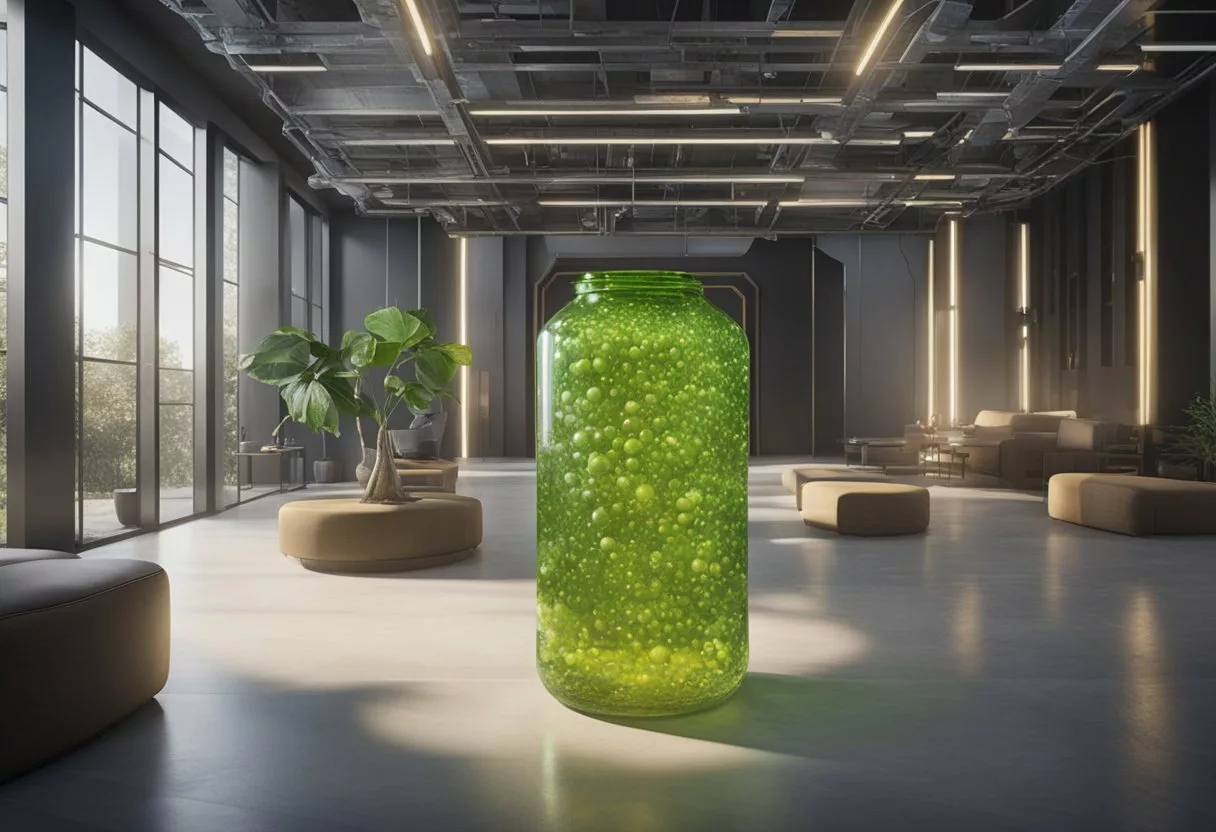Quitting alcohol can lead to significant changes in your body and overall health. When you stop drinking, your body begins to detoxify, leading to noticeable improvements in physical health and wellbeing. As your liver starts to recover, it can better perform tasks like breaking down toxins, and you’ll likely notice clearer skin, reduced inflammation, and fewer body aches.

One of the first changes you’ll experience is better sleep and increased energy levels. Alcohol is known to disrupt sleep patterns, so removing it from your routine can help you achieve deeper, more restful sleep. Your digestive system will also react positively. Without alcohol, it’s easier to absorb nutrients, which can improve your overall health and appetite.
The benefits extend beyond the physical; stopping alcohol can boost your mental and emotional health too. Reduced anxiety and improved focus are common outcomes. Over time, these changes can strengthen your immune system, help you fight illnesses more effectively, and lead to a healthier lifestyle overall.
Key Takeaways
- Stopping alcohol improves liver function and reduces inflammation.
- Quitting drinking leads to better sleep and increased energy.
- Mental clarity and emotional stability often improve after quitting alcohol.
Immediate Effects of Alcohol Cessation

When someone stops drinking alcohol, they may experience both physical and mental changes. These changes can occur quickly, often within hours to days.
Withdrawal Symptoms
When alcohol consumption stops, the body starts to go through withdrawal. Common symptoms include headaches, nausea, and tremors. Some people may also experience sleep disturbances and feel irritable.
In severe cases, individuals might encounter hallucinations and seizures. A condition known as delirium tremens can occur, characterized by confusion, severe shaking, and agitation. This condition requires immediate medical attention. Withdrawal symptoms are more likely in those who drank heavily for a long time. They might start within six to twelve hours and can last several days.
Mental and Emotional Health Changes
Stopping alcohol intake also leads to changes in mental and emotional health. In the short term, someone might feel anxious and depressed. Mood swings are common as the body adjusts to the absence of alcohol.
Long-term benefits include improvements in mood and anxiety levels. People often experience better sleep and feel more rested. These mental health changes can lead to better relationships and more effective focus at work or school. Adjusting to life without alcohol can be challenging, but the positive mental health changes can be significant.
Physical Health Improvements

Quitting alcohol can lead to significant physical health benefits. It impacts the liver, heart, and metabolism, which are crucial for overall health.
Liver Recovery
Stopping alcohol consumption allows the liver to start healing. Without alcohol, the liver can better handle other toxins and improve its function. Heavy drinking can cause fatty liver, cirrhosis, and even liver cancer. When alcohol use stops, fatty deposits in the liver begin to decrease, leading to better liver function.
Cell regeneration also kicks in, helping the liver repair itself. People with alcohol use disorder have a higher risk of liver damage, making it crucial for them to stop drinking. Improved liver function can lead to better digestion, clearer skin, and more energy.
Cardiovascular Enhancements
Quitting alcohol has a positive effect on the heart and blood vessels. Heavy drinking can increase blood pressure, leading to hypertension. Stopping alcohol intake helps reduce blood pressure, lowering the risk of cardiovascular diseases such as heart attacks and strokes.
Alcohol can cause inflammation, contributing to heart disease. When alcohol is removed from the diet, inflammation decreases, improving cardiovascular health. Reduced alcohol intake also helps in managing weight, further enhancing heart health. These changes can contribute to better circulation and overall well-being.
Weight and Metabolism
Alcohol is high in empty calories, contributing to weight gain. By cutting out alcohol, people often see weight loss. The body no longer needs to burn off alcohol calories, allowing the metabolism to focus on burning fats and sugars from food.
Appetite regulation improves, helping people make healthier food choices. When alcohol is no longer part of the diet, the body’s metabolic rate can increase. Weight loss benefits can include reduced risk of diabetes, better sleep, and improved energy levels. A focus on nutrition and exercise aids in maintaining a healthy body weight.
Effects on Sleep and Energy

When someone stops drinking, changes in sleep and energy levels are often noticeable. Alcohol can disrupt sleep patterns, so giving it up can lead to better rest.
Sleep Improvements: Without alcohol, individuals often experience deeper, more restorative sleep. This helps reduce instances of insomnia.
Fatigue Reduction: Over time, less alcohol leads to less daytime fatigue. This is because restful sleep at night helps the body recharge.
Increased Energy: Higher energy levels are common after quitting alcohol. With improved sleep, individuals find they wake up feeling more refreshed and ready for the day.
Better Concentration: Without the influence of alcohol, cognitive functions like concentration and focus often improve. This is partly due to the more consistent and deep sleep patterns.
Alcohol affects the central nervous system, which can lead to disrupted sleep cycles and lower energy throughout the day. By eliminating alcohol, people often notice a dramatic change in how they feel, both mentally and physically.
Quitting alcohol also benefits the liver, which plays a key role in processing toxins. With the liver no longer having to deal with alcohol, it can better perform other vital functions, ultimately contributing to higher overall energy levels.
Digestive System and Appetite

When someone stops drinking alcohol, several changes happen to their digestive system.
Without alcohol, the liver can better perform its regular tasks like breaking down toxins and metabolizing fats. This helps improve overall digestion.
Alcohol impacts the stomach and intestines. It can irritate the stomach lining and disrupt the balance of gut bacteria. Stopping alcohol allows the stomach lining to heal, making digestion smoother.
People may notice changes in their appetite. Some experience a return to normal appetite levels, while others might see a decrease in appetite initially.
Nausea is a common symptom when quitting alcohol. This happens during the withdrawal phase, which includes other symptoms like shaking and sweating. The nausea usually eases after the body has detoxified.
Heavy alcohol use often leads to poor nutrient absorption. Quitting allows the body to absorb vitamins and minerals more effectively, supporting overall health.
Changes in appetite and improved digestion can lead to better energy levels and a healthier weight. Rehydration also plays a role, as alcohol acts as a diuretic, causing frequent urination and dehydration.
Key Points:
- Liver functions better without alcohol.
- Stomach lining heals.
- Appetite levels may change.
- Nausea can occur during withdrawal.
- Improved nutrient absorption.
Stopping alcohol can significantly improve digestive health, leading to better well-being.
Psychological and Cognitive Benefits

Stopping alcohol consumption has numerous psychological and cognitive benefits, such as improved brain health, better mood stability, and enhanced mental clarity. These changes can positively impact various aspects of daily life, providing a sense of well-being and increased emotional balance.
Brain Health and Clarity
Quitting alcohol leads to significant improvements in brain health and cognitive functions. Alcohol can impair brain function, affecting areas like memory, concentration, and attention. Once alcohol is out of the system, the brain can begin to repair itself, improving these cognitive functions.
Mental clarity often improves, making it easier to think, focus, and remember things. The mind feels sharper, and tasks that once seemed difficult become more manageable. The sober curious movement highlights that even a short break from alcohol can lead to noticeable changes in clarity and thought processes.
Improvement in Mood and Emotions
Alcohol can heavily influence mood and emotions, often exacerbating issues like depression, anxiety, and stress. When a person stops drinking, they may notice a substantial improvement in their overall mood and emotional state. Their self-esteem might rise, and they could feel more positive about themselves and their lives.
The absence of alcohol allows the body to better regulate chemicals that affect mood. This can lead to more stable emotions and less mood swings. Improved sleep quality contributes to better mood and energy levels throughout the day, further boosting emotional well-being.
Impact on Immune System and Illnesses

Stopping alcohol can have a positive effect on your immune system. Drinking too much weakens your immune system, making it harder for your body to fight off illnesses. When you stop drinking, your immune system gets stronger and you become less likely to get sick.
Alcohol can cause inflammation throughout your body. When you quit alcohol, this inflammation starts to decrease. This helps your body heal and reduces the risk of diseases related to chronic inflammation.
Quitting drinking also lowers your cancer risk. Heavy drinking is linked to several types of cancer, including liver, breast, and colon cancer. By stopping alcohol, you reduce these risks significantly.
Here are a few benefits of quitting alcohol for your immune system and overall health:
- Stronger immune system: Your body can better fight off infections and diseases.
- Reduced inflammation: Lower inflammation levels help prevent chronic conditions.
- Lower cancer risk: Decreased chances of developing alcohol-related cancers.
For more information, you can read about the effects of stopping drinking on health and what happens to your body.
Risks and Considerations in Quitting

When you quit drinking, there are various risks and considerations to be aware of. These range from withdrawal symptoms to the need for professional support to manage potential complications effectively.
Potential Complications
Quitting heavy drinking suddenly can lead to serious withdrawal symptoms. Individuals may experience shaking, sweating, headaches, nausea, agitation, irritability, and anxiety. For some, more severe symptoms such as seizures and hallucinations can occur. A particularly dangerous condition to watch for is delirium tremens, characterized by confusion, rapid heart rate, and fever.
Physical accidents are also a risk during withdrawal due to impaired coordination and mental confusion. Psychological complications such as severe anxiety and depression may arise, necessitating immediate medical attention. To minimize these risks, it is advised to reduce alcohol intake gradually under a doctor’s supervision rather than stopping abruptly.
The Importance of Professional Support
Professional support is crucial when quitting alcohol to manage withdrawal symptoms and prevent complications. Doctors can prescribe medications to help reduce symptoms and risk of seizures and delirium tremens. These medications can also reduce cravings and ease the transition to sobriety.
Therapy and counseling play a vital role in addressing the psychological aspects of addiction. Support groups and addiction specialists can provide continuous encouragement and strategies for maintaining sobriety. Engaging with a dedicated recovery program increases the chances of successful long-term recovery.
Quitting alcohol without professional support can lead to severe health risks. Therefore, anyone considering quitting should seek a medical consultation to plan a safe and effective approach.
Social and Lifestyle Changes

When someone stops drinking, their relationships often improve. Alcohol can cause tension with family and friends. Without it, they might find more time and energy to spend with loved ones.
Their social life might change too. Many social activities revolve around drinking. In sobriety, people may seek out new activities like sports, hobbies, or volunteer work.
Sobriety can lead to new forms of fun. They may discover joys in activities that don’t include alcohol. For example, attending a concert, hiking, or visiting a museum.
Having a strong support system is important. Joining support groups or finding sober friends can help. Organizations like Alcoholics Anonymous offer community and guidance.
Changes in lifestyle might mean better health. Without hangovers, people often feel more productive and energetic. They may exercise more, eat healthier, and sleep better.
In summary, quitting alcohol can improve relationships, alter social activities, lead to discovering new interests, build a strong support network, and promote a healthier lifestyle. For more details on the specific changes, check out what going alcohol-free does to your body.
Long-Term Outlook

Stopping alcohol consumption has several benefits for the body when considered over the long term.
The liver is one of the primary organs affected by alcohol. Without alcohol, it can focus on metabolizing fats and breaking down other toxins. This reduces the risk of developing liver issues like cirrhosis and fatty liver disease.
For the heart, giving up alcohol can lead to lower blood pressure and a reduced risk of heart disease. High alcohol intake is linked to an increased risk of heart attacks and strokes. Many people notice that their heart health improves significantly with long-term sobriety.
Age can play a role in how the body recovers from alcohol use. Younger individuals tend to recover more quickly than older adults. However, regardless of age, the body starts repairing itself as soon as alcohol is eliminated.
Timeline of Recovery
- First Month: Initial detox and improvement in sleep, mood, and energy levels.
- Three Months: Noticeable improvements in liver function and skin appearance.
- One Year: Significant reduction in the risk of heart disease and other alcohol-related illnesses.
Long-term effects of stopping drinking include weight loss, better mental health, and a reduced risk of various cancers. Some may experience improved digestion and a stronger immune system. Over time, they often see an increase in life expectancy.
Achieving sobriety provides numerous health benefits. The body has an incredible ability to heal itself when given time and the right conditions.
Frequently Asked Questions

Stopping drinking alcohol can lead to noticeable changes in your body. Many people experience improved health, better sleep, and clearer skin.
How quickly does your body change when you stop drinking alcohol?
Changes can start within hours to days. Your body begins to detoxify, leading to improved hydration and reduced inflammation. Symptoms like shakiness, sweating, and nausea may occur, especially for heavy drinkers. Symptoms can range from mild to severe based on your drinking habits.
What does a month of no drinking do to your body?
After a month without alcohol, many people see significant health benefits. Improved liver function, better hydration, and reduced inflammation are common. According to several studies, it can also lead to weight loss, better digestion, and clearer skin.
What happens to your liver when you stop drinking?
Stopping alcohol allows the liver to begin repairing itself. For those with liver damage, such as fatty liver disease, abstinence can lead to noticeable improvement. Over time, the liver can reduce inflammation and start to heal. Reducing alcohol intake can lower the risk of cirrhosis and liver failure.
What are the benefits of 40 days without alcohol?
Benefits increase with time. After 40 days, many people experience improved mental clarity, stabilized mood, and better cardiovascular health. Long-term abstinence can lead to lasting improvements in liver health and overall body function.
Can abstinence from alcohol improve sleep quality?
Yes, avoiding alcohol can lead to better sleep. Alcohol can disrupt sleep patterns and reduce REM sleep. By cutting out alcohol, people often find they fall asleep faster and wake up feeling more refreshed.
How does stopping drinking affect your skin and appearance?
Quitting alcohol can significantly improve skin health. Hydration levels increase, leading to clearer and more radiant skin. Alcohol can cause inflammation and redness, so giving it up can reduce these issues. Over time, you might notice fewer wrinkles and a more youthful appearance.